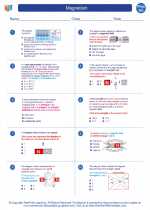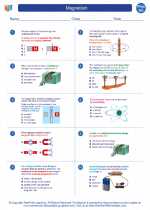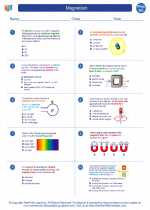Work in Physics
In physics, "work" is defined as the product of the force applied to an object and the distance over which the force is applied. It is a measure of the energy transferred to or from an object by means of a force acting on the object.
Formula for Work
The formula for work is given by:
W = F * d * cos(θ)
Where:
- W is the work done (measured in joules, J)
- F is the force applied (measured in newtons, N)
- d is the displacement of the object (measured in meters, m)
- θ is the angle between the force and the displacement
Units of Work
The SI unit of work is the joule (J). One joule is equal to the work done when a force of one newton is applied over a distance of one meter in the direction of the force.
Positive and Negative Work
When the force and displacement are in the same direction, the work done is positive. When they are in opposite directions, the work done is negative.
Study Guide
To understand the concept of work in physics, it's important to grasp the following key points:
- Understand the formula for work and be able to apply it to solve problems involving force, displacement, and angles.
- Recognize the units of work and how to convert between different units.
- Understand the concept of positive and negative work and be able to determine the sign of work done in various scenarios.
- Practice solving problems related to work, such as calculating the work done by a force in different situations.
By mastering these concepts and practicing problem-solving, you can develop a strong understanding of work in physics.



